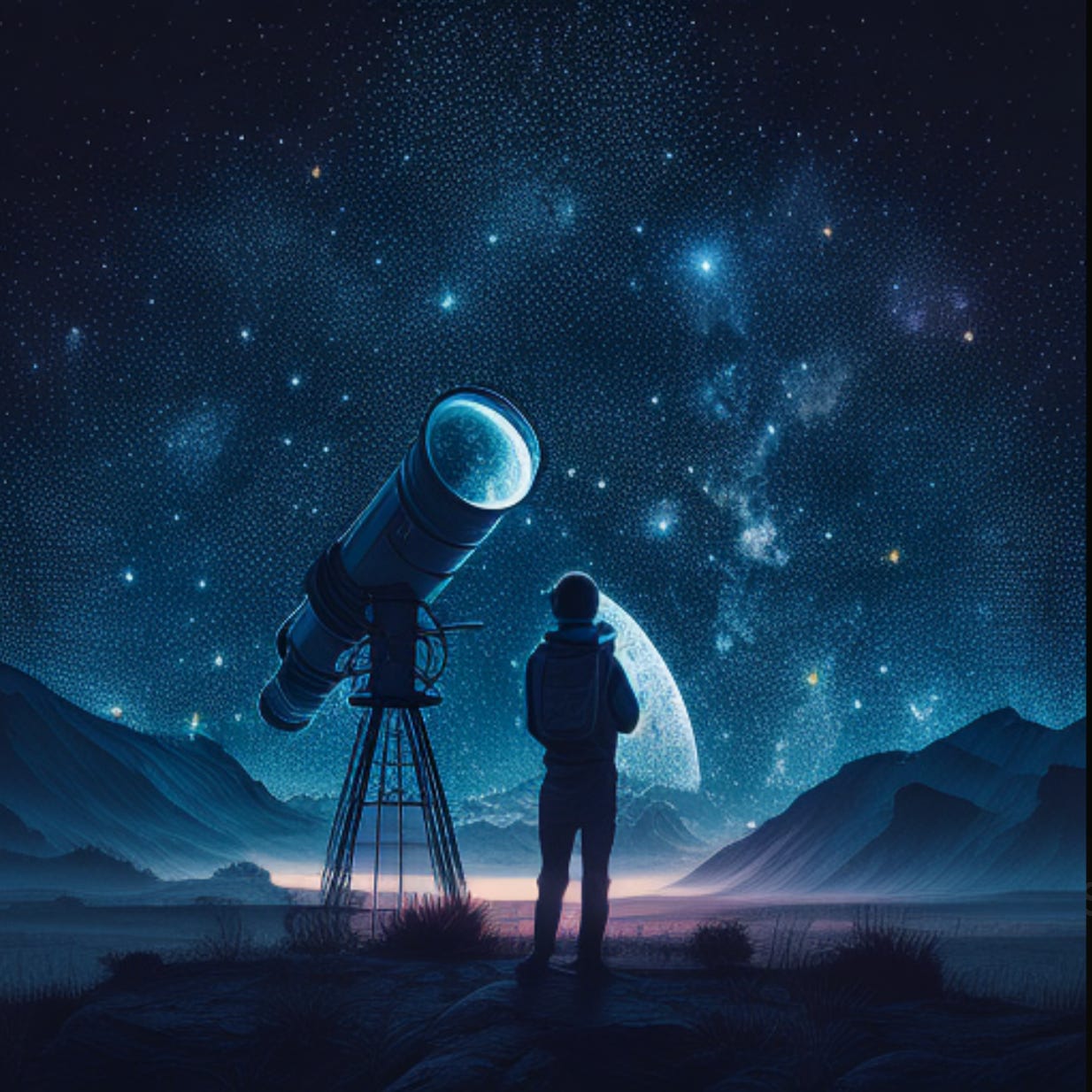#89 – Science, art, and automation
The “Amazing Things & Ideas Newsletter” is now called the “Progress Good” newsletter.
Last time, I wrote about why beliefs have no bearing on knowledge and why scientific theories are impersonal (and always conjectural).
Unfortunately, due to this or a variation of it, some think of science as an inhuman act—a cold way of dealing with the “facts of reality”.
One product of this belief is a weird romanticism of the arts and a mechanical view of science, denigrating it as something it is not.
In reality, science and art are a product of the same creative process of the mind. All knowledge creation happens in the same way of creative conjecture alternating with criticism.
Science is not cold and devoid of emotion. It is not a way of assembling the facts and making calculations all day. Indeed, the act of making tedious calculations is a part of the scientist’s life. But so are some mundane tasks of the artist’s.
We can’t automate all non-creative activities yet. The reality is, these non-creative activities keep the world going and hence we do them.
But ever since the Enlightenment and an explosion in progress, we’ve been automating non-creative work (and people have been worrying about technologies coming for their jobs).
Certainly, we’d all be better off automating that which could be automated and focusing solely on tasks only knowledge-creating entities can do.
Thinking of science as passionless, that-which-could-be-automated logical deduction is simply not true.
Discovery in science is inherently an act of creativity (something a dumb computer program cannot do). It begins with a leap of the imagination aimed at addressing a particular problem.
The pursuit of discovery is what gives the individual scientist a sense of pleasure and of adventure, feelings and a significance of life quite akin to that of the artist.
The weekly roundup
1. Book I’m reading:
How I Found Freedom in an Unfree World: A Handbook for Personal Liberty by Harry Browne
(I found this 14 minute YouTube video where the author discusses the book quite good too.)
2. On objective beauty:
3. Best take on GPT-4 I’ve come across so far:
4. Stability is found in flexibility:
“As a set of discoveries and devices, science has mastered nature; but it has been able to do so only because its values, which derive from its method, have formed those who practice it into a living, stable and incorruptible society. Here is a community where everyone has been free to enter, to speak his mind, to be heard and contradicted; and it has outlasted the empires of Louis XIV and the Kaiser. Napoleon was angry when the Institute he had founded awarded his first scientific prize to Humphry Davy, for this was in 1807, when France was at war with England. Science survived then and since because it is less brittle than the rage of tyrants. This is a stability which no dogmatic society can have. There is today almost no scientific theory which was held when, say, the Industrial Revolution began about 1760. Most often today’s theories flatly contradict those of 1760; many contradict those of 1900. In cosmology, in quantum mechanics, in genetics, in the social sciences, who now holds the beliefs that seemed firm fifty years ago? Yet the society of scientists has survived these changes without a revolution and honors the men whose beliefs it no longer shares. No one has been shot or exiled or convicted of perjury; no one has recanted abjectly at a trial before his colleagues. The whole structure of science has been changed, and no one has been either disgraced or deposed. Through all the changes of science, the society of scientists is flexible and single-minded together and evolves and rights itself. In the language of science, it is a stable society.”
— Jacob Bronowski, Science and Human Values, Chapter 3: The Sense of Human Dignity
*emphasis mine.
Thanks for reading.
Support this free newsletter at buymeacoffee.com/arjunkhemani
Twitter: @arjunkhemani
Blog: arjunkhemani.com




